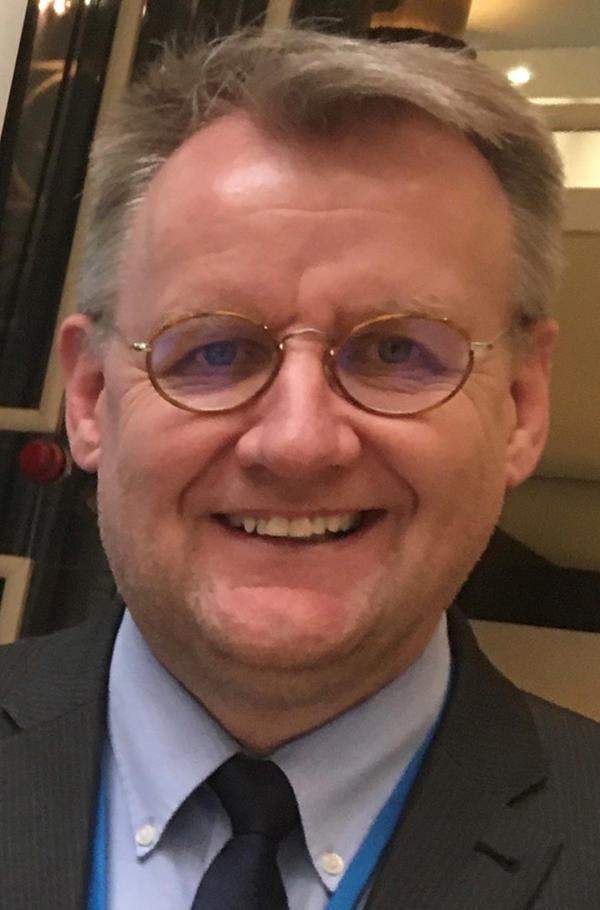A lecturer at the University of Worcester has been awarded an MBE in the Queen’s Birthday Honours list for 2020.

Dr Derek Farrell, Principal Lecturer in Psychology and Course Leader for the MSc in EMDR Therapy at the University of Worcester, has been appointed a Member of the British Empire for his services to Psychology.
“I’m very humbled and extremely delighted,” Dr Farrell said. “I didn’t think these kinds of things happened to people like me.”
Dr Farrell is a leading international figure in the field of trauma therapy, and his research focusses on developing new and effective ways of reducing the harmful effects of trauma in troubled communities across the globe.
He uses a therapy known as EMDR – Eye Movement Desensitisation and Reprocessing – to help people suffering the effects of trauma to revisit painful memories and neutralise some of their power to harm. His work as a researcher and leading EMDR practitioner has taken him to some of the most troubled corners of the world, from the devastation of Kashmir following the 2005 earthquake that left more than 80,000 people dead, to the refugee camps of Northern Iraq where tens of thousands of Yezidi people sought protection from the persecution of ISIS.
“I’ve heard some terrible terrible things, seen some terrible terrible things, but I’ve also met some of the world’s most remarkable people,” Dr Farrell said. “As a trauma psychologist I’ve seen huge suffering, but I’ve also seen communities coming together, and the strong helping the vulnerable to rebuild.”
University of Worcester Vice Chancellor and Chief Executive, Professor David Green CBE, said: “During the height of ISIS’s power, Dr Farrell bravely volunteered to work with people, mostly Yezidis, who had been traumatised by mass murder of their community, rape and enslavement. He worked at a location just seven miles from the then front line. The degree of danger can be judged by the fact that he was met from his flight with a personal bodyguard, the University took out a special insurance for him at the rate of £1,000 for a week and we received detailed, daily assurances about his safety and security from the Kurdish security forces throughout his then ‘secret missions’. Dr Farrell really deserves this award.”
Dr Farrell is currently working to develop new therapeutic approaches that can support NHS staff facing huge pressure on the frontlines of the coronavirus crisis.
“These are professionals who are used to experiencing stress in their work,” he said, “But it’s the sheer volume of the difficulties they are facing as a result of Covid-19 that are leading to problems.”
“We are working with NHS staff to provide virtual therapy sessions to help them deal with the stress and trauma they are facing in a socially distanced way. So far the sessions seem to be making a difference, but anxiety levels amongst frontline staff are definitely rising in anticipation of a second wave, so there are challenges ahead.”
Dr Farrell’s interest in trauma therapy stretches back 30 years.
Today, Dr Farrell is concerned that, although psychologists have a better understanding of how to help traumatised populations than ever before, demand is outstripping supply as global events conspire to put huge pressure on increasing numbers of people.
“I think there’s also less compassion at the moment because of how certain issues are framed,” he said. “People don’t see migrants as a traumatised and vulnerable population for example, but as an external threat. That’s not helpful.”
“Ultimately trauma is about power, love and security, or the absence of these things,” he added. “If you get in a boat and risk your life on the busiest shipping lane in the world, it’s because you want to empower yourself to fulfil your love for your family by bringing them to a secure place.”
“Ultimately I think we need to tackle the causes as well as the symptoms,” he added. We can develop new therapeutics, but we need to reduce the burden of trauma as well through better understanding. A more trauma-informed world is a more compassionate and peaceful one.”